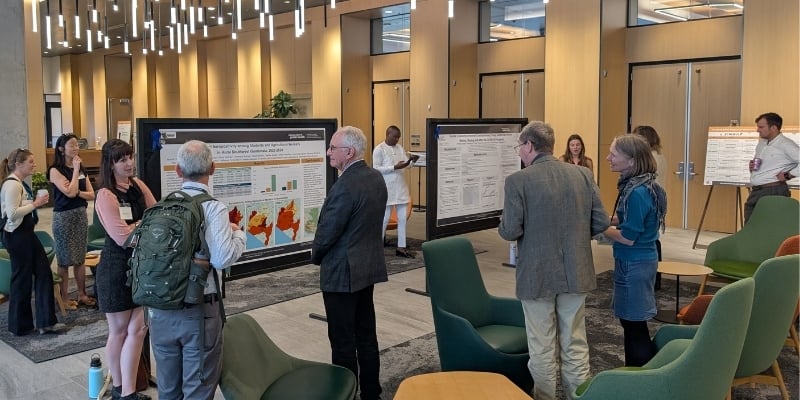Mental health is at the front and center as our world faces the coronavirus pandemic. According to the National Institute of Mental Health, an estimated 9.6 million American adults suffer from a serious mental illness —that is 1 in 5 adults. Mountain and rural communities, ski towns specifically, have significantly higher rates of suicide compared to the national average (14.0 per 100,000). Destinations such as Telluride and Aspen in Colorado and Alta and Snowbird in Utah have up to two to three times as many suicides as the national average. It has been referred to as the “paradise paradox”.” With the allure of the West’s landscapes and outdoor lifestyles often comes a host of realities including isolation, lack of mental health care, easy access to firearms, and financial stressors. Experts from the University of Colorado Helen and Arthur E. Johnson Depression Center have also cited the social makeup of these communities as a contributing factor to mental health conditions and suicide. The transient nature of resort communities results in people having to regularly rebuild their support systems.
Last September, we partnered with community groups in Summit County, Utah to invite local employers to share their perspectives on the topic. Representatives from the tourism and service industries expressed the significant mental health struggle their communities face. One participant, an owner of a local restaurant group, summed it up as a “toxic work environment.” “You have people who come here to live the dream but have to work three jobs just to get by,” he explained. “We live and work in a place with primarily seasonal jobs which come with income instability, very high demands, and stress in peak times.” Other participants shared how they support employees by shifting schedules to allow employees to take days off even at busy times. “Overall, we heard from local business leaders that mental health is an issue they care about. They want to find solutions to ensure that their workforce is safe not only when they come to work, but when they go home,” shared Lili Tenney, director of outreach at the Center for Health, Work & Environment. “These employers often face ongoing struggles just to stay in business, so to have people take time off to share their personal stories and commitment to take action was very encouraging.”
In response to the workforce needs of these communities, our Center partnered with the Depression Center to host two days of workshops in February for mental health and suicide prevention in the workplace. The in-person trainings focused on reducing stigma, identifying warning signs, gaining crucial conversation skills, and establishing adaptable workplace supports. The first day trained 150 employees from Vail Resorts representing seven company divisions including base and mountain operations, hospitality, skier services, and corporate administration. The group of supervisors ranged from 25-66+ years of age and responded in pre and post surveys that they had all been in contact with someone who appeared to be experiencing mental health challenges at work. Sixty-nine percent of them reported being in contact with someone who appeared suicidal. The second day was hosted by the Park City Chamber of Commerce and brought together managers and supervisors from the service and tourism industries. Participants improved their knowledge about suicide from pre-training (3.1/5) to post-training (4.1/5) and improved their ability to get help for someone considering suicide from pre-training (3.4/5) to post-training (4.6/5).
“Employers in these communities are eager to play a role in supporting their employees,” says Tenney. “While our work at the Center aims to serve workers across the Western region, we are focused on developing community models that provide education and resources to help prevent mental illness and suicide in all places where access to care is lacking and risk factors are high.”
To receive more information on supporting employees, visit our Health Links Resource Center and training opportunities.
Special thanks to Alex Yannacone, Director of Education and Community Programs at the Helen and Arthur E. Johnson Depression Center, CONNECT Summit County, Park City Chamber of Commerce, and Vail Resorts.
CU Anschutz
Fitzsimons Building
13001 East 17th Place
3rd Floor
Mail Stop B119
Aurora, CO 80045






